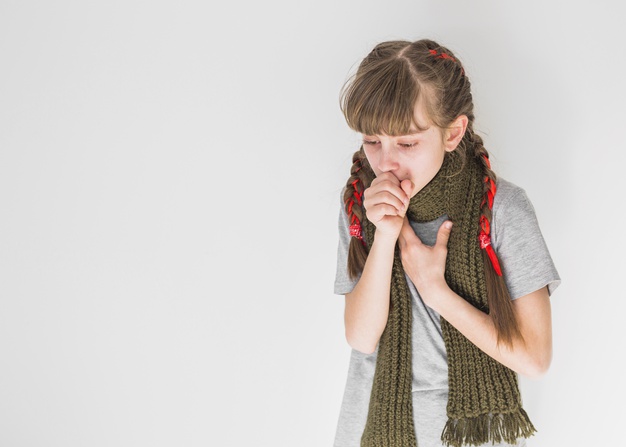CHILD HEALTH
Homoeopathy In Children’s Cases
Recurrent colds and cough, Recurrent Tonsilitis, Constipation and Indigestion, Dentition complain Stammering, Autism, Attention Deficit Disorder (ADD & ADHD), Enuresis (Involuntary urination), Exam phobia, lack of concentration, Developmental Delayed, Childhood Asthma, Obstinate children (Ziddi), Problem Child.
NOTHING IS QUITE SO GRATIFYING AS MAKING A CHILD SMILE.
BRINGING THE JOY OF GOOD HEALTH TO OUR LITTLEST CLIENTS IS A WONDROUS GIFT FOR EVERYONE INVOLVED.
The moment one sees their child having fever, sneezing, coughing, or crying due to pain or some health issue, one succumb to anxiety and rush to the nearest doctor available.
It has been said that a child is the father of a man. Thus, even as an infant, we can perceive the beginnings of future illness and can prevent them even before it raises its head.

While treating children, our treatment is based on a couple of things like an examination of child + detailed observation of the child when they come to our clinic + parents observation at home + mother’s state during pregnancy, not just on what we get in reports.
AS A HOMOEOPATH, WHAT WE EXPECT FROM PARENTS WHEN YOU VISIT US FOR YOUR CHILD?
It is very important for parents to provide a very detailed account of what they have observed in their child. What parents have observed (not what you are thinking about them) about their behaviour at home, with their friends, at school, etc. Is there any difference in their behaviour than before?
What are the peculiarities in that child, how your child is different from his siblings or other children?
We also take into account how active is the child? How does he run? Is he very sad, very jumpy, or very dull? Is he dancing, is he dancing with rhythm?
All such minor details are very helpful, which indicates the energy of the child.
The position during sleep, is he sleeping one-sided, or on the abdomen, on back, very restlessness during sleep? Is saliva dribbling during sleep?
Also food craving and aversion are very important.
Imaginations, fantasies, stories he likes, dreams he get at night are very important.
The way the child narrate his complaints, storytelling, poems, drawing, hobbies, making various gestures, making his own stories, various imagined character all these are very important to individualize that child.
Case Study: A 9 yrs old boy visited regarding his complaint of recurrent abdominal infection, headache and bedwetting. After describing his problems he told me spontaneously that he likes to play various games, cartoons, play stations, puzzle games, etc. Amongst all these, he likes obstacle races, the ones like jumping races where you have to run and jump in between. He likes to play hide and seek. He likes one specific game called “scary house” in which he likes to come from behind and scare the other person. On T.V. he likes to see CID and crime files in which he likes to watch kidnapping and murder mystery. He sees scary dreams of ghosts, where ghosts come from behind and take him away. All this information helped me to identify his state thus leading me to his remedy. I had given medicine which is prepared from “jumping spider”. After receiving medicine within a short span not only his recurrent complaints reduced but also his dreams of ghosts and his tendency to see CID and other such programs also reduced. He was much calmer than before and also the destructive ideation and tendency also reduced.
Sometimes, children cannot express themselves comfortably in front of parents since, parents tend to interrupt or correct them constantly, and hence at times, we ask parents to stay outside to give children more freedom and space.
While treating children, it is also very important to understand the mother’s state during pregnancy. It is a well-known fact that a mother’s state during pregnancy influences her child. In most cases, we have seen that the mother’s physical complaints and mental state during pregnancy and a child’s physical and mental state are quite similar to each other.
Case Study: A child aged 2 years with “dandy walker syndrome” consulted us for treatment since there was no other conventional treatment available for this syndrome. He used to be very drowsy. It would take some stimulus to wake him up. At times he would get startled from noise and on other occasions, there was no reaction even with a loud noise. He made no demands, didn’t react much. He presented with global developmental delays. During the case taking process, we found that the mother’s presentation during pregnancy was quite similar. She felt very weak, lethargic and very drowsy. She would want to sleep all the time. She could even sleep through a sense of strong smell and pain during pregnancy. After giving medicine based on symptoms of a child as well as the mother’s state during pregnancy, we can see improvement in the child’s state and in his various complaints.
Homeopathy will help you to maintain your child’s health and development in a more natural and safe way.
Improving resistance power
Healthy Diet: Eat a balanced diet rich in fruits, vegetables, whole grains, lean proteins, and healthy fats. Include foods high in vitamins C and E, and zinc.
Regular Exercise: Engage in moderate exercise most days of the week to boost immunity and overall health.
Adequate Sleep: Aim for 7-9 hours of quality sleep each night to support immune function and recovery.
Stress Management: Practice stress-reducing techniques such as deep breathing, meditation, or yoga to lower cortisol levels and improve immune response.
Hydration: Drink plenty of water throughout the day to maintain hydration and support bodily functions.
Avoid Smoking and Excessive Alcohol: These can weaken the immune system and overall health.
Regular Health Check-ups: Stay up-to-date with vaccinations and preventive health screenings to protect against infections and diseases.
Hygiene Practices: Wash hands frequently, avoid close contact with sick individuals, and maintain good hygiene habits to prevent infections.
Recurrent cold and cough
- Encourage frequent handwashing.
- Provide a balanced diet and ensure adequate sleep.
- Keep your child hydrated with water and warm fluids.
- Avoid secondhand smoke and manage allergies.
- Stay up to date with vaccinations and teach good hygiene practices.
Allergic bronchitis
- Symptoms: Persistent cough, wheezing, chest tightness, and difficulty breathing.
- Causes: Allergens such as pollen, dust mites, pet dander, or certain chemicals can trigger inflammation.
- Diagnosis: Based on medical history, physical examination, allergy testing, and lung function tests.
Asthma
- Symptoms: Wheezing, shortness of breath, chest tightness, and coughing, especially at night or early morning.
- Triggers: Allergens (like pollen, dust mites), irritants (such as smoke or strong odors), respiratory infections, exercise, and cold air can trigger symptoms.
- Diagnosis: Based on medical history, physical exam, lung function tests (spirometry), and sometimes allergy tests.
- Lifestyle: Avoiding triggers, maintaining a healthy weight, and staying physically active under controlled conditions are key.
Low appetite
Low appetite, or decreased appetite, refers to a reduced desire to eat. Key points include:
- Causes: Can be due to various factors such as illness, stress, medications, digestive issues, mental health conditions like depression or anxiety, or aging.
- Symptoms: Feeling full quickly, lack of interest in food, unintentional weight loss, and fatigue.
- Management: Addressing underlying causes, eating smaller, more frequent meals, choosing nutrient-dense foods, staying hydrated, and managing stress can help improve appetite.
Worms
Worms, in a medical context, typically refer to intestinal parasites that can infect humans and cause various symptoms. Key points include:
- Types: Common types include roundworms, tapeworms, hookworms, and pinworms.
- Symptoms: Symptoms can vary depending on the type of worm but may include abdominal pain, diarrhea or constipation, nausea, vomiting, weight loss, and visible worms in stool or around the anus.
- Transmission: Transmission occurs through ingestion of contaminated food or water, contact with infected feces, or skin penetration (hookworms).
- Diagnosis: Diagnosis involves stool sample analysis and sometimes blood tests or imaging studies.
Bedwetting
- Causes: It can be caused by delayed development of bladder control, genetics (family history), hormonal factors, urinary tract infections, emotional stress, or sleep disorders.
- Diagnosis: Diagnosis involves medical history, physical examination, and sometimes urine tests or bladder function tests.
- Support: Providing support and reassurance to the child is important to prevent embarrassment or anxiety.
Tonsillitis
- Symptoms: Sore throat, difficulty swallowing, swollen tonsils, fever, and sometimes white patches or pus on the tonsils.
- Causes: Most commonly caused by viruses like the common cold or bacteria such as Streptococcus.
- Diagnosis: Based on symptoms, physical examination, and sometimes throat swabs for laboratory testing.
Growth disorders
Growth disorders refer to conditions that affect a child’s physical growth and development. Key points include:
- Types: Includes conditions like short stature, delayed growth, or excessive growth.
- Causes: Can be genetic, hormonal, nutritional, or due to underlying medical conditions affecting bone and tissue growth.
- Diagnosis: Involves medical history, physical examination, growth charts, and sometimes imaging or hormone tests.

